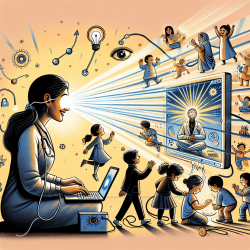In today's fast-paced world, access to timely and effective mental health support is crucial, especially for vulnerable populations such as Indigenous youth. In Northwestern Ontario, these young individuals face unique challenges that contribute to longer waits for mental health services compared to their non-Indigenous peers. The delay in accessing care can exacerbate symptoms and lead to adverse outcomes. However, innovative solutions like the JoyPop mobile app are paving the way for transformative changes in mental health support.
The JoyPop App: A Beacon of Hope
The JoyPop app is a mobile mental health tool designed to improve emotion regulation among Indigenous youth aged 12-17 who are awaiting mental health services. Developed through patient-oriented research methods, the app incorporates evidence-based features aimed at enhancing emotional well-being. By focusing on transdiagnostic factors rather than isolated disorders, JoyPop addresses common challenges faced by these youths, such as difficulties with emotion regulation.
The app's features include mood tracking, journaling, breathing exercises, art activities, and more. These tools are designed to be used at least twice daily over a four-week period, providing continuous support and skill-building opportunities. The app's development involved collaboration with Indigenous communities and stakeholders to ensure cultural relevance and effectiveness.
Research Insights: A Pathway to Better Outcomes
A recent study titled "Increasing access to mental health supports for 12–17-year-old Indigenous youth with the JoyPop mobile mental health app: study protocol for a randomized controlled trial" explores the app's impact on emotion regulation and overall mental health. The study employs a pragmatic, parallel-arm randomized controlled trial design to compare the effectiveness of the JoyPop app against usual practice (UP), which involves regular monitoring without the app.
The primary objective is to assess improvements in emotion regulation among participants using the app. Secondary objectives include evaluating changes in mental health difficulties and treatment readiness. The trial also examines whether the app reduces other health service usage and associated costs.
Implementing Research Outcomes: A Call to Action
The findings from this research highlight the potential of mobile apps like JoyPop to serve as valuable tools in bridging gaps in mental health support for Indigenous youth. Practitioners can enhance their skills by integrating such technology into their care pathways. By doing so, they can offer immediate and culturally relevant support that empowers youth during critical waiting periods.
This research invites practitioners to explore further studies on mobile mental health interventions and consider their implementation in diverse settings. As more evidence emerges supporting the efficacy of these tools, practitioners can confidently advocate for their inclusion in standard care practices.
The JoyPop app represents a promising step towards improving access to mental health resources for Indigenous youth. Its success could inspire similar initiatives across different communities and age groups, ultimately contributing to a more inclusive and effective mental health care system.
To read the original research paper, please follow this link: Increasing access to mental health supports for 12–17-year-old Indigenous youth with the JoyPop mobile mental health app: study protocol for a randomized controlled trial.










